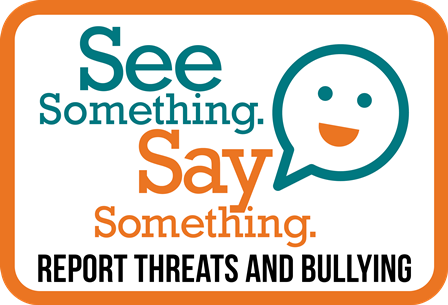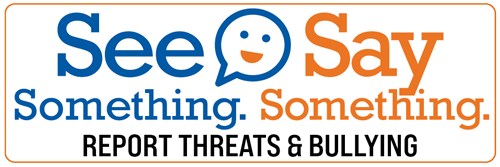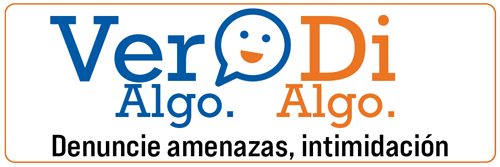12 GCS Teachers Receive Bosch BEST STEM Grants
$13, 474 Funded to GCS Teachers

Twelve GCS elementary school teachers are the recipients of $13,474 in grant monies awarded by the Bosch BE3ST Program.
The Bosch Energy, Environment, Engineering, Science, and Technology (BE3ST) Teacher Grant Program supports teachers in promoting STEM learning in ways that foster excitement among students for these fields. The BE3ST Teacher Grant Program awards up to $1,000 for individual educators, and $2,000 for groups of up to four educators. Grants support innovative, interactive, project-based learning experiences for P-12 educators in districts in which Bosch has a presence.
“Greenville County Schools strives to build an environment that inspires a spirit of innovation, so students can visualize their future and have the tools necessary to make a positive impact in our world,” said Dr. Charlotte McDavid, Executive Director for Academic Innovation and Technology. “As a result of the grant funding from the Bosch Energy, Environment, Engineering, Science, and Technology (BE3ST) Teacher Grant Program, we are helping prepare students to become innovative thinkers, creative problem solvers, and high-level collaborators through STEM.”
Grant Recipients
Charnley DeMeritt, Oakview Elementary – Lunar Landings - $953
Lunar Landings is a STEM project designed to commemorate the 50th anniversary of the moon landing by incorporating current exploration goals of NASA and private companies like Space X into students' understanding and application of astronomy concepts.
Jaime Jackson, Bethel Elementary – Ocean Protection Project - $949
The goal of this project is to bring awareness to the impact that plastic pollution has on our oceans. With the use of the Brackitz building system and the design engineering process, students will be challenged to design and build a prototype of a vessel to be used off shore to capture plastic pollution before the currents bring it out to sea.
Susan Merrill, Summit Drive Elementary - I Do, You Do, WeDo 2.0! - $990
Lego Education's WeDo 2.0 kits promote collaboration by having students explore science and engineering concepts through designing project prototypes using Lego bricks and motors. Included in the kits are the bricks, motor, hub, and sensors needed to complete the many projects included in the Lego standards-based curriculum.
Suzy Dover, Stone Elementary Academy - Dashing into Digital Kindergartners - $953
Dash robots provide a primary-friendly introduction to programming and invention. Through these accessible devices and applications, students learn the basics of computer science and digital literacy while incorporating foundational math and motor skills. Kindergarten students will benefit from these interactive lessons and tools by turning virtual learning into hands-on experience.
Todd Childers, Westcliffe Elementary - Designing an Aerodynamic Car for the Future - $850
Students will form into mock auto companies to design and 3-D print a car that can save on energy as determined by being aerodynamic. The companies will be given a budget in order to meet cost ceilings while designing and implementing the creation of the model of their vehicle.
Linda Tedrow, Stone Elementary Academy – STEAM with Legos - $990
LEGO WeDo 2.0 kits will be used in classrooms and in the after school S.T.E.A.M encore class. Groups of two or three students will collaborate on science and engineering projects, working together to solve problems, and create, question, and discover new ideas using the resources provided by LEGO.
Leah Sullivan, Ellen Woodside Elementary – Print the Playground - $1,800
The first grade students at our school will be participating in a project based learning unit in the STEAM lab at our school. During this unit, students will be challenged to design a piece of playground equipment they think future kindergarten students would enjoy.
Sharon Bannister, Mauldin Elementary – Keep Calm and KEVA On! - $1,000
When it comes to project-based learning, nothing helps inquiring minds like Keva Planks. In a world oversaturated with technology, the true beauty of Keva planks is their simplicity. Many students connect technology to computers and phones, but according to Keva Planks, “even the very best 3D programs are a simulation of real life.”
Amy Milligan, Alexander Elementary - Watch Me Design In a-MAZE-ing 3D - $997
Mazes are puzzles and they require problem solving. Students will work in pairs to design their own 3D Marble Maze. Students will incorporate elements of maze design, including diversions, into their mazes and then play them using a marble.
Courtney Pauling, Thomas E. Kerns Elementary - Sphero Robotics Programming - $1,003
The Sphero robotic balls will give the students a hands-on introduction to the world of robotics, computer programs, and coding. It will empower students to create tasks using math, engineering, art, and science all while mastering the Engineering Design process and learning to collaborate.
Tanya Moore, Tigerville Elementary – Rain Barrel Project - $1,397
The Rain Barrel and Weather station project incorporates the engineering design process by engaging students in a creative hands-on way to design a rainwater catchment tank and collecting data. The weather station is a tool for students to monitor and collect data on weather patterns and conditions.
Lorri Payne, Monarch Elementary – Electric Art - $997
Paper circuits provide a simple, cost effective way to spur student curiosity and creativity while introducing concepts related to electric circuits. Using simple material, such as paper, conductive foil tape, LEDs, and coin cell batteries, students will learn how to create functional electric circuits and the basics of electricity while using other technologies as part of the creative process making electronic artwork.


